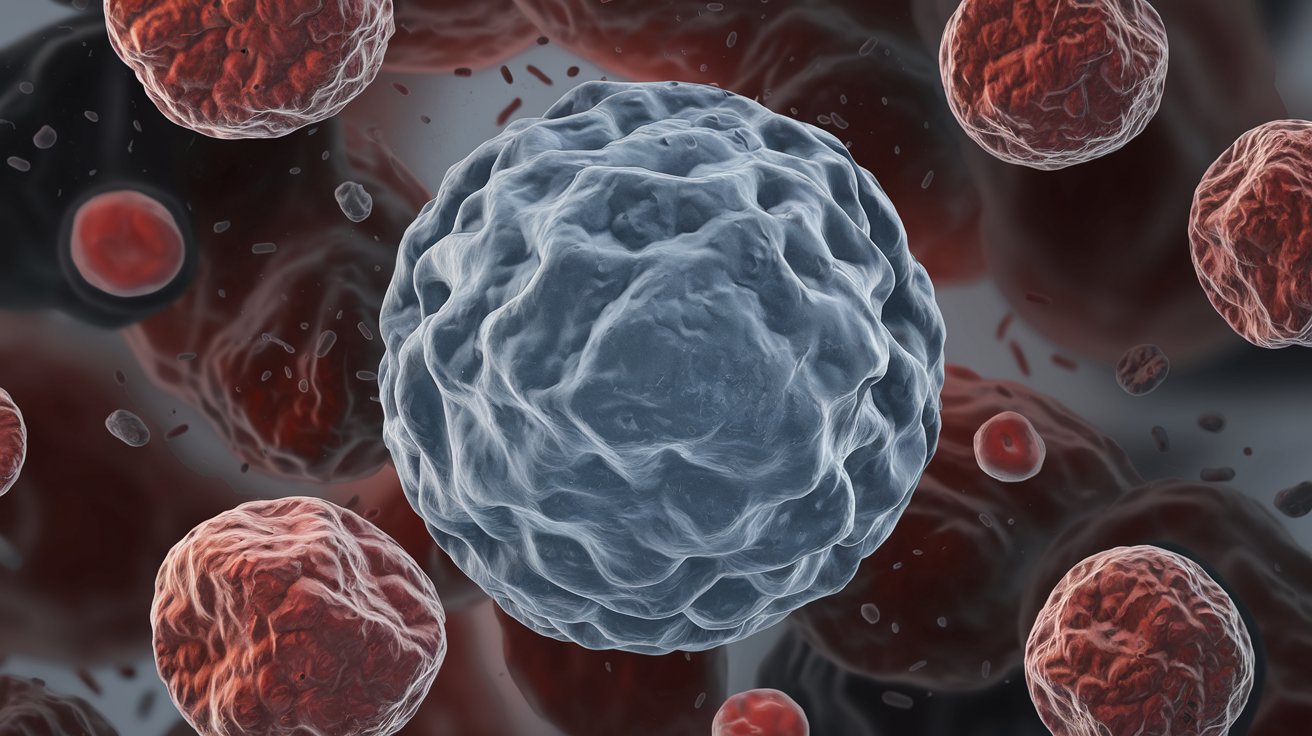
T-Cell Chronic Lymphocytic Leukemia (T-CLL) is a rare type of leukemia that affects the T-cells, a crucial part of the immune system. Unlike the more common B-cell CLL, T-CLL progresses differently and requires unique treatment approaches. Understanding T-CLL can be challenging due to its rarity, but knowing the basics can help patients and their families navigate this complex disease. This article will provide 25 essential facts about T-CLL, covering symptoms, diagnosis, treatment options, and recent advancements in research. Whether you're newly diagnosed or seeking more information, these facts aim to offer clarity and support.
Key Takeaways:
- T-Cell Chronic Lymphocytic Leukemia (T-CLL) is a rare type of leukemia that affects T-cells, primarily in older adults. Symptoms include fatigue, weight loss, and swollen lymph nodes.
- Genetic mutations, family history of leukemia, and exposure to certain chemicals are risk factors for T-CLL. Early detection through blood tests and imaging can improve treatment outcomes.
What is T-Cell Chronic Lymphocytic Leukemia?
T-Cell Chronic Lymphocytic Leukemia (T-CLL) is a rare type of leukemia that affects T-cells, a type of white blood cell crucial for immune response. Understanding this disease can help in recognizing symptoms and seeking timely treatment.
- T-CLL is a subtype of chronic lymphocytic leukemia (CLL) that specifically involves T-cells rather than B-cells.
- It is less common than B-cell CLL, accounting for only about 2-5% of all CLL cases.
- T-CLL primarily affects older adults, typically those over the age of 60.
- The disease progresses slowly, often taking years before symptoms become noticeable.
- Symptoms can include fatigue, weight loss, night sweats, and swollen lymph nodes.
Causes and Risk Factors
While the exact cause of T-CLL remains unknown, several risk factors have been identified. These can help in understanding who might be more susceptible to developing the disease.
- Genetic mutations play a significant role in the development of T-CLL.
- Family history of leukemia or other blood cancers increases the risk.
- Exposure to certain chemicals, such as benzene, has been linked to higher T-CLL risk.
- Previous chemotherapy or radiation therapy for other cancers can increase the likelihood of developing T-CLL.
- Men are more likely to develop T-CLL than women.
Diagnosis and Detection
Early detection of T-CLL can significantly improve treatment outcomes. Various diagnostic methods are used to identify the disease.
- Blood tests are often the first step in diagnosing T-CLL, revealing abnormal levels of white blood cells.
- Flow cytometry helps in identifying the specific type of leukemia by analyzing the characteristics of cells in a blood sample.
- Bone marrow biopsy can confirm the diagnosis by examining the bone marrow for cancerous cells.
- Imaging tests like CT scans and MRIs are used to check for swollen lymph nodes and other signs of disease spread.
- Genetic testing can identify specific mutations associated with T-CLL, aiding in diagnosis and treatment planning.
Treatment Options
Treatment for T-CLL varies depending on the stage of the disease and the patient's overall health. Here are some common treatment methods.
- Watchful waiting is often recommended for early-stage T-CLL, where the disease is monitored but not actively treated.
- Chemotherapy is a common treatment, using drugs to kill cancer cells or stop their growth.
- Targeted therapy involves drugs that specifically target cancer cells without affecting normal cells.
- Immunotherapy boosts the body's immune system to fight the cancer more effectively.
- Stem cell transplant may be considered for younger patients or those with aggressive disease.
Living with T-CLL
Managing life with T-CLL involves more than just medical treatment. Lifestyle changes and support systems play a crucial role.
- Regular exercise can help manage fatigue and improve overall well-being.
- A balanced diet rich in fruits, vegetables, and lean proteins supports immune function and overall health.
- Mental health support, including counseling and support groups, can help patients cope with the emotional impact of the disease.
- Regular follow-up appointments are essential to monitor the disease and adjust treatment as needed.
- Staying informed about the latest research and treatment options empowers patients to make informed decisions about their care.
Key Points to Remember
T-Cell Chronic Lymphocytic Leukemia (T-CLL) is a rare type of leukemia that affects the T-cells in the immune system. Understanding the symptoms like fatigue, night sweats, and swollen lymph nodes can help in early detection. Diagnosis often involves blood tests, bone marrow biopsies, and imaging scans. Treatment options range from watchful waiting to chemotherapy and targeted therapies, depending on the stage and severity.
Living with T-CLL requires ongoing medical care and lifestyle adjustments. Regular check-ups and a healthy diet can make a significant difference. Support groups and counseling can also provide emotional relief. Staying informed about the latest research and treatments can empower patients and caregivers alike.
Remember, early detection and proactive management are crucial. If you or a loved one shows symptoms, consult a healthcare professional promptly. Stay informed, stay proactive, and take control of your health.
Frequently Asked Questions
Was this page helpful?
Our commitment to delivering trustworthy and engaging content is at the heart of what we do. Each fact on our site is contributed by real users like you, bringing a wealth of diverse insights and information. To ensure the highest standards of accuracy and reliability, our dedicated editors meticulously review each submission. This process guarantees that the facts we share are not only fascinating but also credible. Trust in our commitment to quality and authenticity as you explore and learn with us.
